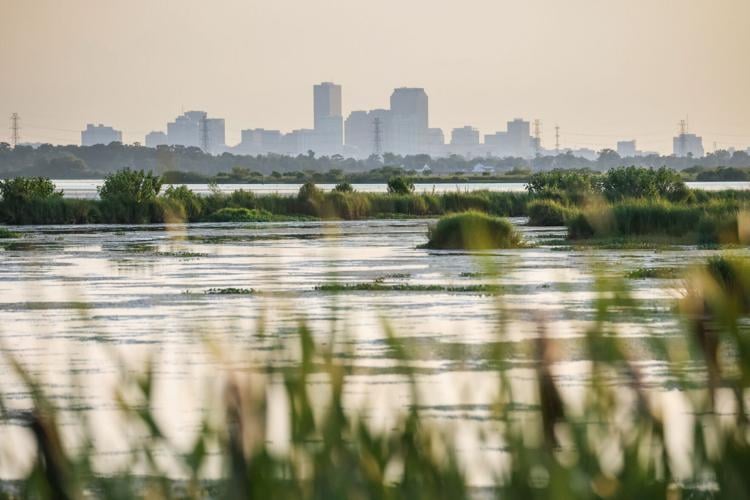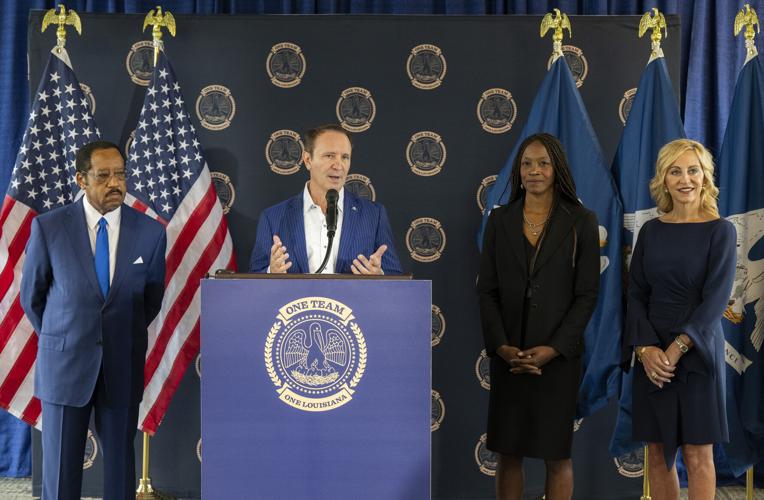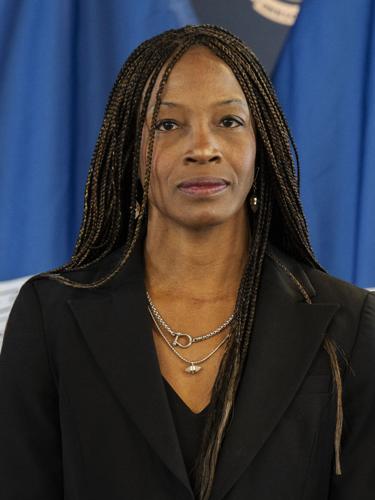Louisiana has led the Deep South on climate action for the past eight years, charting a path under Democratic Gov. John Bel Edwards towards ending carbon emissions and growing clean energy.
But the state may soon shift course.
Republican Gov.-elect Jeff Landry on Wednesday offered the clearest indicator yet that his nascent administration will leave behind key elements of Edwards’ climate-friendly approach. After naming a former federal wildlife official with an agrochemical industry background as Louisiana’s top environmental watchdog, he decried the state’s current carbon-reducing goals and promised to breathe new life into the oil and gas industry.
“Everything that I’ve read about any policy [says] trying to be carbon neutral is extremely destructive on the economy,” Landry said.
Achieving zero carbon emissions is a goal of Louisiana’s sweeping Climate Action Plan adopted under Edwards. The two-term governor touts the role of the oil and gas industry in Louisiana’s economy, but also made expanding renewable energy and mitigating climate change central planks of his governorship.
In contrast, Landry has sowed doubt on the scientific consensus that climate change is caused by human activity. He has also been a steadfast ally to Louisiana’s powerful petrochemical industry.
Yet Landry hinted Wednesday that he won’t abandon all of Edwards’ policies.
He’ll balance “the environment and our industries and the jobs that they create,” he said, adding that it’s important for residents to have access to clear air and water.
Landry also announced Wednesday that former U.S. Fish and Wildlife Director Aurelia Skipwith Giacometto will lead the state’s Department of Environmental Quality. She will be the first Black woman to head the state agency, Landry said.
A biologist, attorney and avid hunter, Giacometto grew up in Indianapolis and earned three university degrees before starting her career as a lab technician for agrochemical giant Monsanto. She led the U.S. Fish and Wildlife Service from 2019 to 2021 under former President Donald Trump.
"Louisiana is unique in its natural resources, which attract many people to the State,” she said in a statement. “I look forward to bringing my background and experience in science and conservation to serve the governor and the great people of Louisiana."

Governor-elect Jeff Landry is joined by Tim Hardy, one of the chairs of his transition team, Aurelia Skipwith Giacometto, and his wife Sharon during a press conference Wednesday, November 15, 2023, at Russo Park in Lafayette, La. Landry named Aurelia Skipwith Giacometto to head Louisiana's Department of Environmental Quality.
A change in course?
Edwards has called on Landry to uphold some of his climate policies. Chief among them is Edwards' Climate Action Plan, which aims to transition industry away from carbon-based energy and create jobs through the renewable energy transition, among other efforts.
It calls for Louisiana to reach “net zero” carbon emissions by 2050.
Landry, the current state attorney general, called climate change a “hoax” in 2018 and doubled down on that assertion in an August interview. In his remarks Wednesday, he lamented the loss of oil and gas jobs and touted the industry's role in lifting people from poverty.
But he balanced those points with a pledge to diversify the state’s energy sources.
“Since my days in Congress, I’ve said I’m ‘all of the above,’” he said. “I don’t take any particular form of energy off the table."
Edwards spokesperson Eric Holl declined to respond directly to Landry’s claim that carbon neutrality goals are “destructive.”
In a statement, Holl instead pointed to a list of projects Edwards’ climate plan has helped secure, including a $1.1 billion solar energy manufacturing facility in Iberia Parish and a $2 billion clean fuels facility in Rapides Parish.
“Louisiana’s talented workforce, as well as our unique infrastructure and geology, have already made us a leader in the global energy transition,” Holl said.
New appointment
As Landry and Giacometto weigh how to craft environmental policy they’ll get advice from construction executives, lawyers for petrochemical companies and local officials on Landry's transition team.
Those picks and Landry’s choice to helm DEQ drew criticism from environmentalists. Anne Rolfes, whose group the Louisiana Bucket Brigade advocates for people impacted by the petrochemical industry, said the appointment signaled that Landry seems more interested in catering to industry than standing up for residents.
“As has been true for decades in Louisiana, it’ll be up to ordinary people to stand up and protect ourselves from the petrochemical industry that is determined to destroy our state for its own profit,” Rolfes said.
After leaving the federal government, Giacometto advised companies on development of coal-based products. She remains politically active, sitting on the directors' board of the Steamboat Institute, a Colorado-based conservative policy nonprofit aligned with skeptics of mainstream climate science.
Her work with Monsanto drew scrutiny during her confirmation to the Trump appointment from congressional Democrats, who questioned whether her ties to the firm would influence her work in government. The interior department said at the time that Giacometto was in “full compliance” with federal ethics rules.
Giacometto has not lived or worked in Louisiana, according to a Landry spokesperson, but married her late husband in New Orleans. Her family has roots in Mississippi, she said in a 2020 interview.
“Louisiana has always had a very special spot in her heart,” said Kate Kelly, Landry’s press secretary. “She is excited to serve a state that means a lot to her.”



